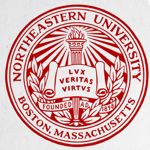 In the words of Steve Ballmer, it’s all about “developers. developers. developers.”
In the words of Steve Ballmer, it’s all about “developers. developers. developers.”
Seattle needs more of them, and the University of Washington and other state-run institutions just aren’t producing enough.
Enter Northeastern University, a private university which announced this week plans to set up a branch campus in Seattle to grant graduate degrees in key science and engineering fields.
If they gain approval by the state’s Higher Education Coordinating Board, Northeastern hopes to set up operations next year in a new campus that is “high-tech, professional, urban, and flexible.”
I’ve mentioned in the past the importance of creating a private university in the Seattle area along the lines of Stanford or MIT (making that my #1 wish for the region in a recent feature story in Seattle Magazine).
Intrigued by Northeastern’s plans, I followed up with the university’s senior strategist and market development officer, Sean Gallagher, to get his insights on why they picked Seattle.
I also wanted to get the perspective of Ed Lazowska, a longtime computer science professor at the University of Washington who has been beating the drum for more science and engineering education in the state for years.
Below are extended remarks from both men, first from Gallagher.
“For two years, we have been engaged in an exhaustive and comparative process of evaluating metropolitan areas around the country where current educational offerings at the graduate level were not keeping pace with the growth of the local economy, and thus, where we believe Northeastern and its research and graduate program offerings can add value.
The Seattle metro area has been a leader in job creation and the growth of its knowledge economy, and is recognized nationally and worldwide as having a highly educated population. However, while its bachelor’s degree attainment rates are comparable (23-24%), much of the Seattle region’s human capital strength is at the bachelor’s and associate degree level. At less than 13% of the adult population, the Seattle region’s graduate degree attainment rate has not kept pace with regions that it competes with for management, technology, and scientific talent such as Boston (18%) and Silicon Valley (19%). There has been rapid and sustained growth in Seattle and in the state in jobs preferring or requiring a master’s degree, and given state budget cuts and other dynamics, the demand for educated professionals exceeds supply.
This need has been well-documented by the Higher Education Coordinating Board, the Prosperity Partnership of the Puget Sound Regional Council, and various local/state-wide professional and industry associations. Many of the state’s business leaders have called for increased graduate degree production in STEM fields.
The Seattle region and Washington State as a whole is also relatively unique nationally in not having a private research university (the University of Washington and Washington State are two high quality public research universities, but in other metros and states with strong knowledge economies, there is the presence of multiple private research universities partnering with industry and serving students).
Seattle is known nationally and worldwide as a city that is innovative and has a global orientation, and these are demonstrable core values and strengths of our university and thus an ideal alignment.”
Lazowska, meanwhile, tells GeekWire that he welcomes additional educational opportunities. He points out that there is lots of demand from students and employers.

“My attitude about all manner of competition is: ‘If we can’t win, then someone should shoot us.’ We have one of the nation’s top undergraduate programs, one of the nation’s top graduate programs, and one of the nation’s top professional masters degree programs. Students who want to work at Microsoft or Amazon.com or Google or startups, or who are currently working there and want to gain additional education, are not going to choose Northeastern over UW, even independent of the significant tuition differential. The tragedy is that there isn’t more of us to go around. This leaves highly qualified individuals who live here with insufficient options.”
Lazowska cited statistics that 80 percent of Science, Technology, Engineering, and Mathematics (STEM) jobs in the next decade are projected to be in computer science and other engineering fields. (Full slides here).
Lazowska continued:
“In Washington, Computer Science and other fields of Engineering have the largest gap between supply and demand of all professional fields. This gap between supply and demand is due to lack of program capacity, not lack of student interest. “Capacity” means faculty to teach additional class sections, laboratory space for students to work in, etc. In UW Computer Science, and in UW Engineering as a whole, we must turn away hundreds of students every year who have successfully completed pre-requisites, because we do not have the capacity – the people, the space – to teach them. UW has not expanded Engineering bachelors degree production in more than 30 years. This is due to a combination of legislative prioritization and internal University of Washingtion prioritization.”
While Lazowska notes that the UW supplies top talent to Microsoft, Amazon, Isilon and other companies, he points out that “there is far greater demand from industry, and far greater demand from students.”
“The tragedy is that UW is a much stronger program than Northeastern in every respect. If students were willing to pay Northeastern-level tuition to UW (and if UW were allowed to charge it), the capacity problems would be dramatically reduced!”



